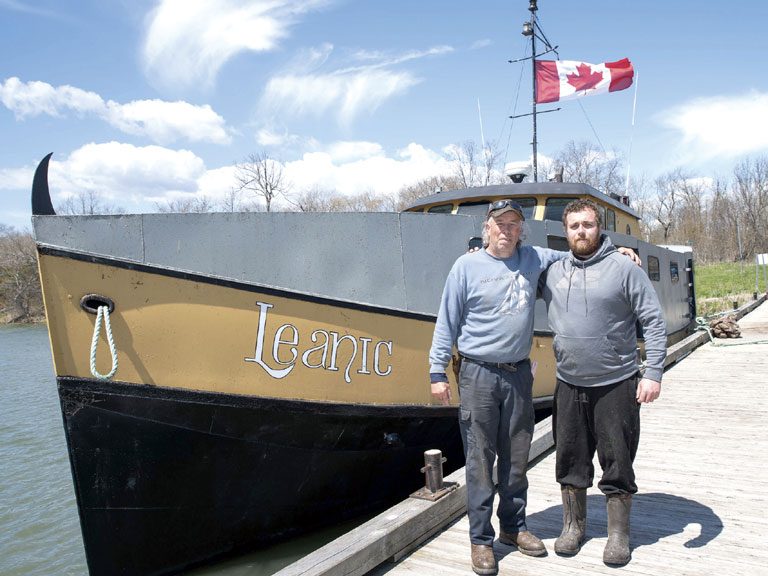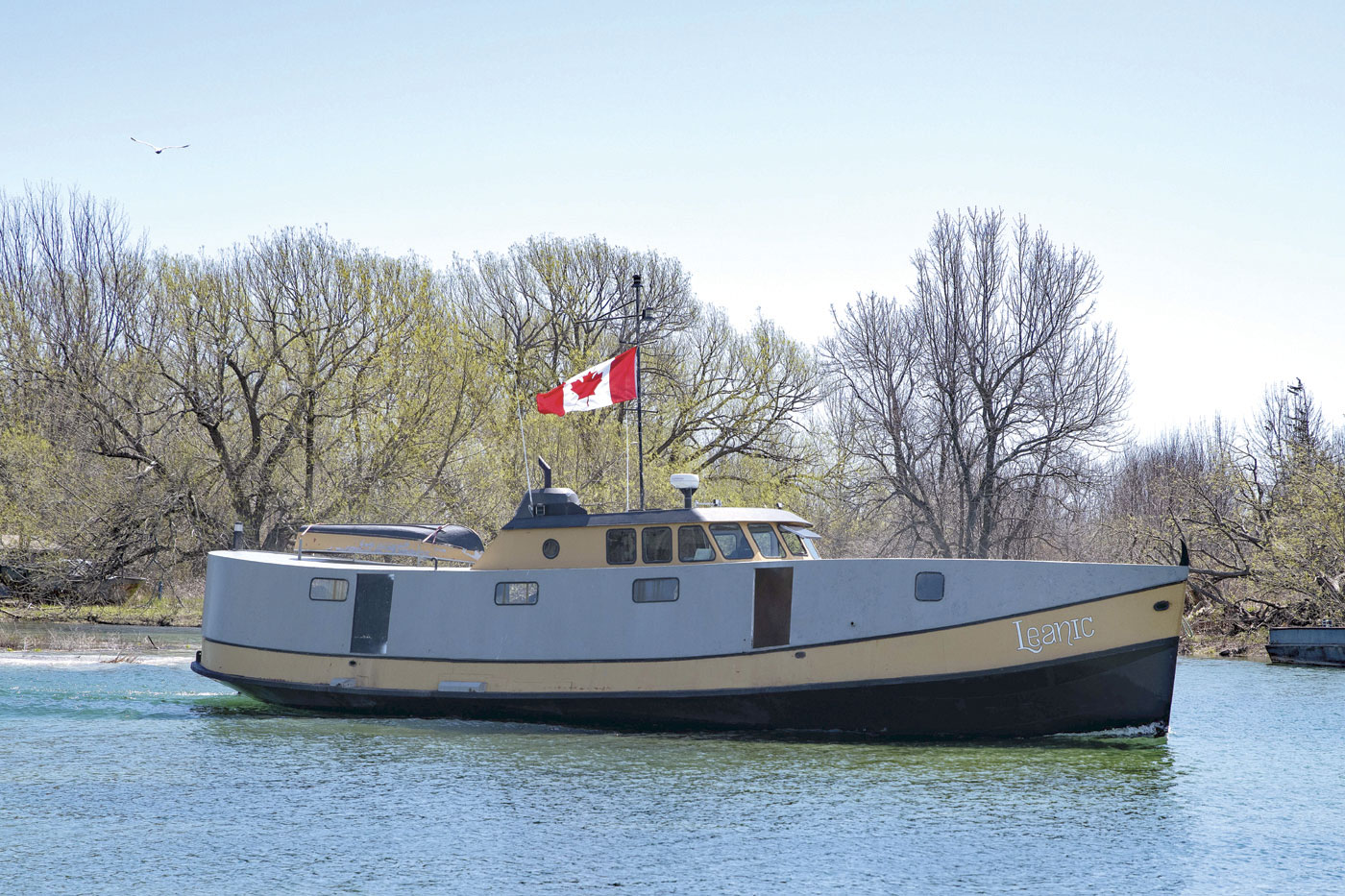County News
Master of the Leanic

Tim McCormack continues a tradition going back five generations
For Tim McCormack, life doesn’t get any better than being out on the lake in his fishing boat, the Leanic. He says that it’s his “happy place”. “I’ve been doing this since I was knee-high to a grasshopper,” he said. “My father was a fisherman and on my mother’s side my grandfather Mel McIntosh was a fisherman, and his grandfather David McIntosh was one of the first commercial fishermen in this area.” Tim learned the trade and the secrets of the lake from his father and grandfather, and he provided an analogy for his knowledge of the lake that is a little too colourful to print in a family newspaper. Now, he is passing that generational knowledge along to his son, Jordan, who is just a couple of exams away from obtaining his Captain’s licence. “I think Jordan will keep on fishing. He’s fished in Lake Erie for a couple of years and is pretty knowledgeable now. He’ll soon be able to replace his dad,” said Tim with a laugh. Tim bought his boat, the Leanic, in 2006 from Scruton Marine in Port Dover. “It fished mainly in Lake Erie, and I took a summer out there and fixed it up and brought her home in 2006 and have been fishing with it ever since. It’s a great boat, no doubt about it.”
At this time of year Tim and Jordan and another crewmember head out from the dock at Point Traverse at about 6 a.m. to check the nets they had set on the previous day. “We usually go out in nice weather now. Way back, you’d want a bit of a west wind to kind of stir the fish up, but now it seems like if you get any wind it fouls your gear,” said Tim. They are chasing after whitefish, and Tim said that last Saturday was a good catch for this time of year, with close to 500 pounds. The best time is usually later in the fall.
“We’ve had a 12,000 lb lift, which I think was the biggest ever for whitefish here. In the fall we usually expect about five or six thousand pounds every time we go out, but right now if you get 500 pounds, that’s a decent day.” The catch is packed in ice, and is picked up twice weekly to be delivered to Presteve Foods, a processing plant in Wheatley, near Point Pelee. Most of the processed fish is sent to the US, but Tim said there’s a growing market for whitefish and pickerel in Toronto. A requirement of his licence is that he must keep accurate records of his catch.
Tim and Jordan are among the few remaining commercial fishers in the County, and Tim is unsure what the future may hold. “Point Traverse was a major fishing community. There must have been at least 15 families that fished out of here. There were at least four docks on this side and four or five on the other side of the harbour. It was very active. They fished a lot of eels back then, and whitefish, yellow perch and lake trout.” He said the ecology of the lake has changed since he started fishing. There’s very little yellow perch on this side of the basin, and the whitefish are found in different places from his grandfather’s days. “Where my grandfather caught whitefish and where we catch whitefish are two different spots because the zebra mussels took all the microscopic organisms that used to feed the whitefish. They used to go to the mud for feeding, and now the whitefish have adapted and they go to the hard bottom looking for gobies. It looks like everything is feeding on gobies and they’ve become part of the food chain. They don’t live long enough to collect a lot of contaminants—because they get eaten—and it’s turned into a good thing. Even the yellow perch up the bay are eating gobies and getting bigger than ever. The food web is all connected.” The unexpected benefit of zebra mussels and round goby, both invasive species, being part of the food chain is that lake trout could soon be available as a commercial catch, as contaminant levels have dropped. Tim is on the board of directors of the Ontario Commercial Fishing Association, and they are working with the Canadian Food Inspection Agency to bring in quotas for lake trout.
Tim said that it’s in his blood to be a fisherman. “I was in marine construction for about 20 years, but I always went fishing when I could with Dad. Then the opportunity came up for this boat, and I thought I’d buy it and do a little fishing or a little dredging like my grandfather did. And the fishing pulled me in, and I thought, ‘Let’s just fish.’ It’s not as lucrative, but I enjoy it, and I’m happier. You have to be happy at your job before you can enjoy life.”


Great story . Where do you keep your fish tug ?
My father Laverne Kelly use to own the Leanic at one time. He fished it out of Erieau, Ontario in Lake Erie.